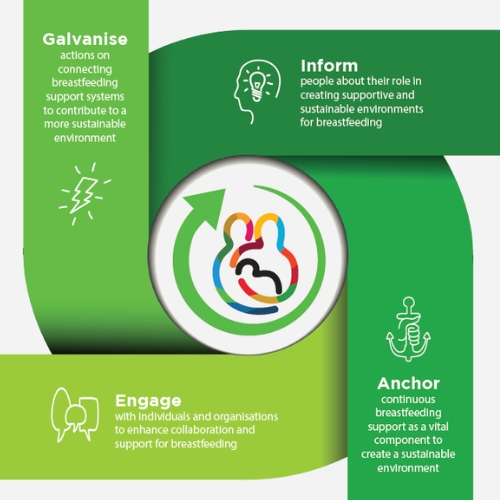#WBW2025 will focus on environment and climate change. It will highlight our roles in supporting breastfeeding to create a sustainable environment while simultaneously reducing the impact of climate change caused by artificial feeding. The theme is aligned with Thematic Area 3 of the WBW-SDG 2030 campaign.
Breastfeeding is a natural, renewable food that is environmentally safe. Breastfeeding is produced and delivered without pollution, packaging or waste and is the sustainable solution that is good for the planet and its people. Prioritising and supporting breastfeeding will reduce the growing climate impact of artificial infant feed supply chains. However, breastfeeding can be challenging when parents are not fully supported. WBW2025 will outline the roles and connect the actors in the Warm Chain of Support for Breastfeeding to create a breastfeeding-friendly environment together at all levels; national, health, workplace and community. By connecting the actors working at different levels, a synergistic effort to support the parents will be in place.
The circular loop represents sustainability, highlighting both the reduction of the negative environmental impact associated with artificial feeding and the establishment of sustainable support systems for breastfeeding. The upward swoop of the arrow signifies the importance of prioritising breastfeeding as a means to contribute to a more sustainable environment.
The colour green aligns with thematic area 3 of the WBW-SDG 2030 campaign.
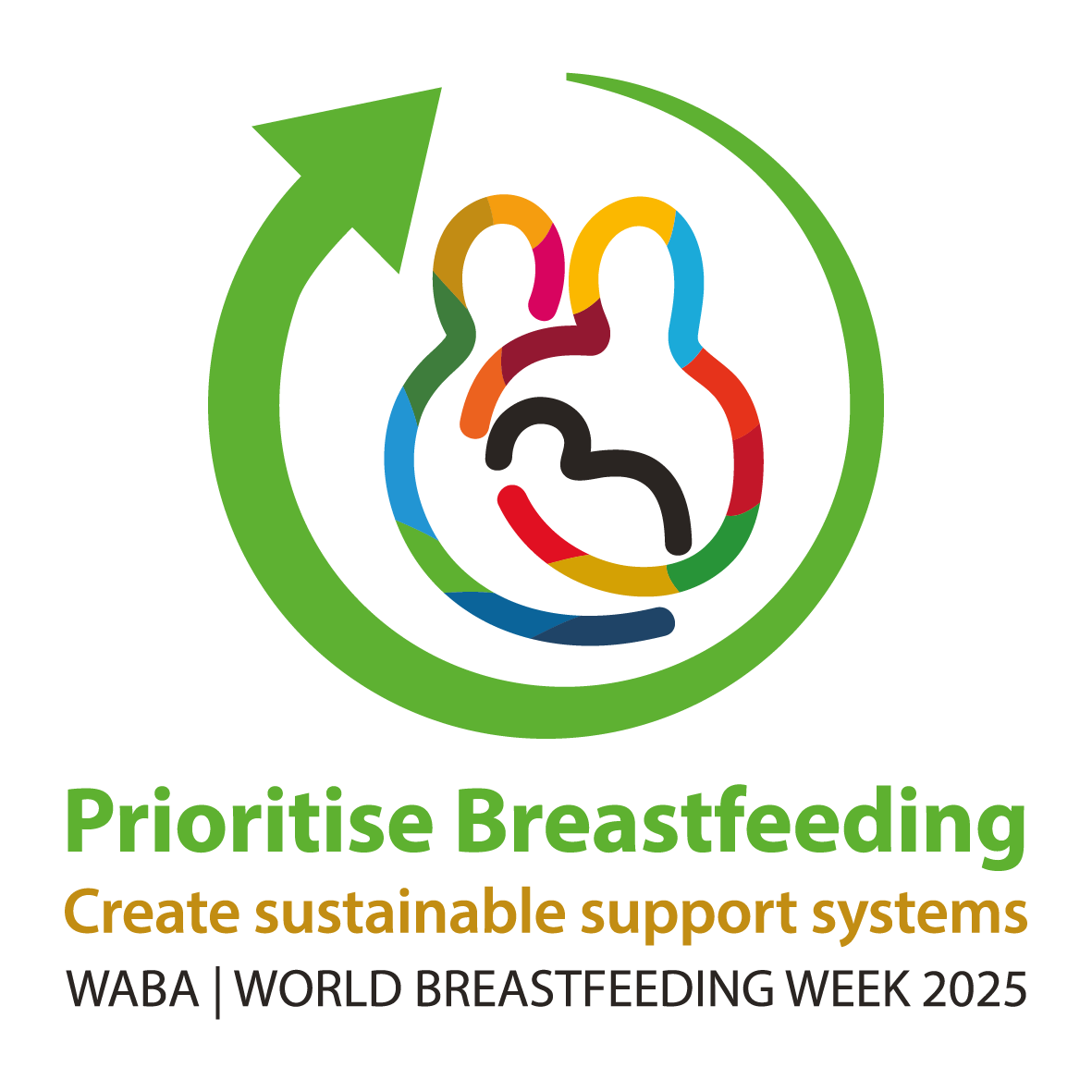
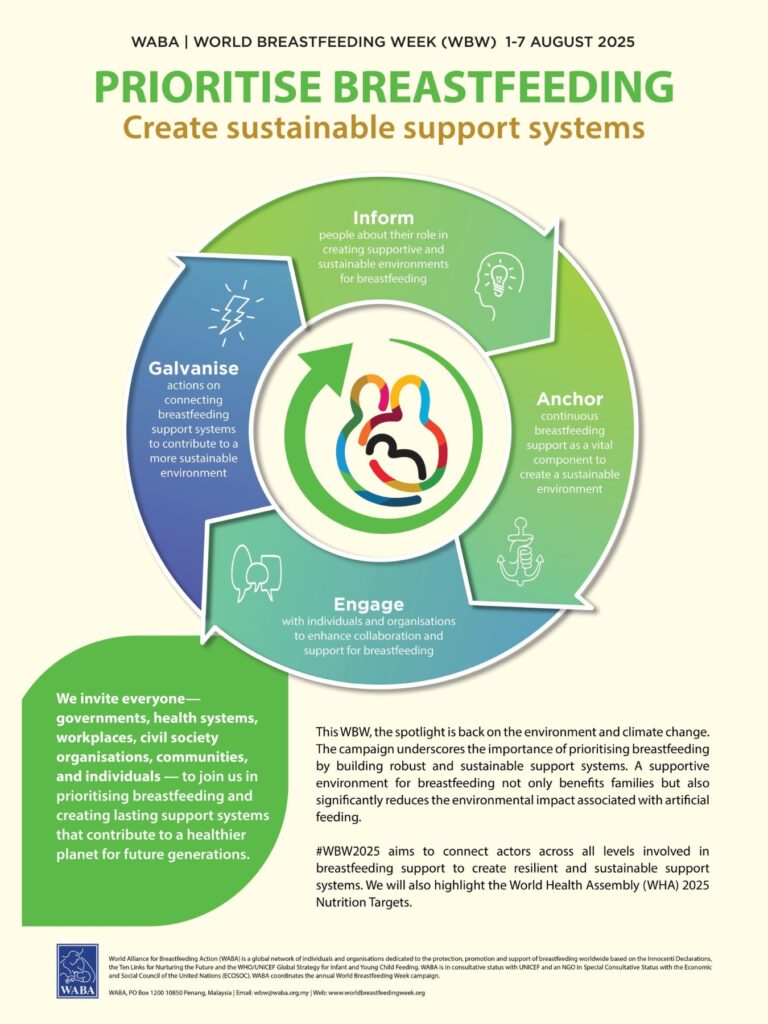
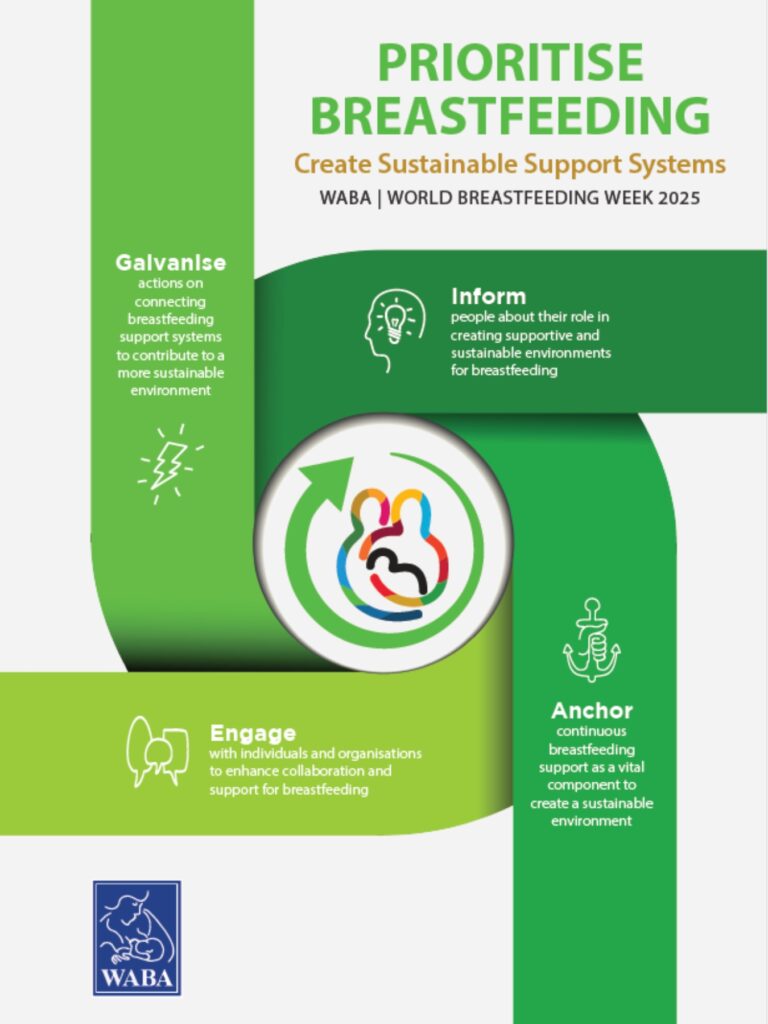
CREATING A SUSTAINABLE BREASTFEEDING SUPPORT SYSTEM
A sustainable breastfeeding support system is an all-of-society approach that ensures every mother has the support, environment, and resources to breastfeed successfully, from conception through the first two years of the child’s life and beyond.
Support for breastfeeding must begin in the antenatal period, with health workers trained to provide clear, reassuring, and skilled guidance.
It means building a system that is: Continued support during hospital stays and especially after discharge is crucial. Mothers need help to manage breastfeeding challenges, gain confidence, and balance breastfeeding with returning to work, especially in the face of widespread unethical marketing by the formula industry. It is a system rooted in continuity, inclusivity, and integration across generations,
geographical boundaries, and social layers, a warm chain of support for breastfeeding.
(WBW 2025 – Action Folder)
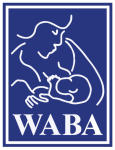
World Alliance for Breastfeeding Action (WABA) is a global network of individuals and organisations dedicated to the protection, promotion and support of breastfeeding worldwide based on the Innocenti Declarations, the Ten Links for Nurturing the Future and the WHO/UNICEF Global Strategy for Infant and Young Child Feeding. WABA is in consultative status with UNICEF and an NGO in Special Consultative Status with the Economic and Social Council of the United Nations (ECOSOC). WABA coordinates the annual World Breastfeeding Week campaign.

